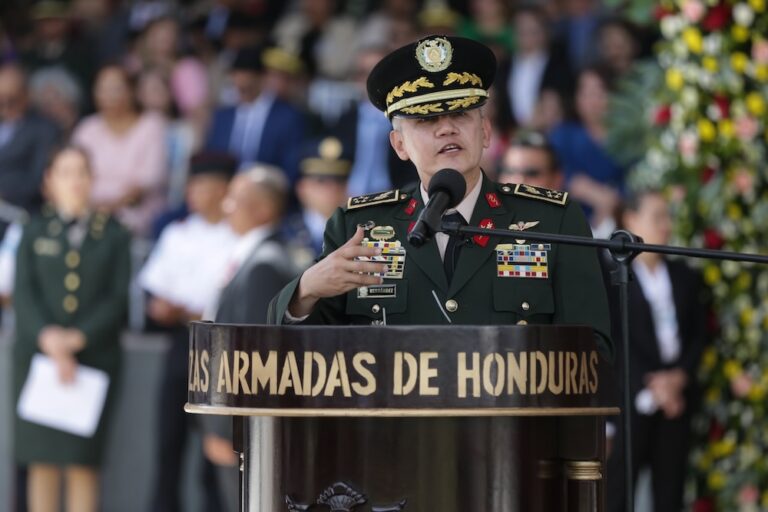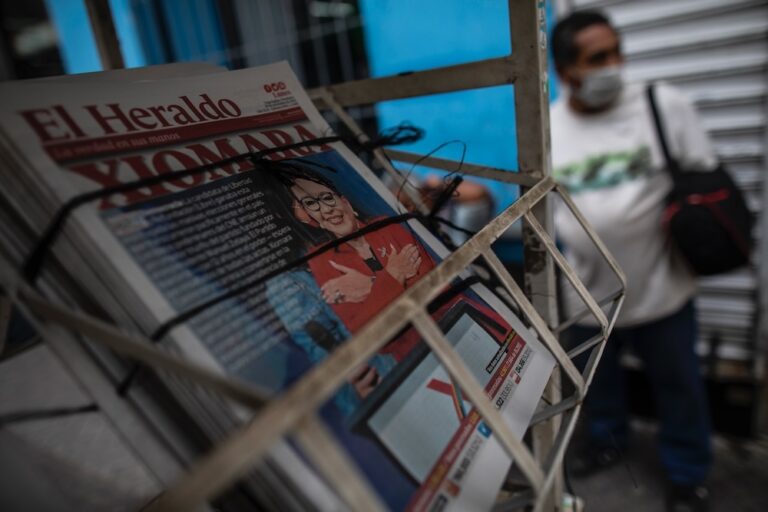AMARC and ARTICLE 19 are on a mission in Honduras to monitor the freedom of expression violations that have been experienced by members of La Voz de Zacate Grande radio station.
(AMARC/ARTICLE 19/IFEX) – 27 August 2010 – On 22 August 2010, there was a clash involving members of the community of Zacate Grande in which three people were hurt. A group of people, accompanied by police and military officers, arrived in Puerto Grande, Honduras, to demand the property deeds that Miguel Facussé, a prominent Honduran landowner, had intended to give them. The land in question, which is part of a long-standing land feud, has historically belonged to the local settlers, who have been living in the area for more than 100 years.
On 3 June 2010, approximately 300 police and military officers raided the community of Puerto Grande and attempted to shut down La Voz de Zacate Grande, a community radio station. The station’s broadcasts focus on providing advice and services to the rural population. The community is in the process of suing to obtain the land deeds. According to Honduran law, a land’s deed belongs to whoever has occupied the land for more than 10 years. This applies to Zacate Grande.
Nonetheless, judicial proceedings are under way against five community leaders who allegedly defied the orders that called for the radio station’s closure. Meanwhile, the land claims have not been resolved and the use of the military to shut down the radio station was excessive.
There are rumours that on 31 August, there will be a police raid to evict the inhabitants of Zacate Grande. AMARC and ARTICLE 19 reiterate that as long as the land claims conflict is not resolved, they will consider any attempt to silence the La Voz de Zacate Grande as a violation of the right to free expression.
On 31 August, AMARC – Latin America and the Caribbean (AMARC ALC), ARTICLE 19 and International Media Support (IMS) will visit Zacate Grande to document the human rights violations that members of the community radio station have experienced, with a particular emphasis on violations to freedom of expression.
RECOMMENDED ACTION:
Calling on organisations to please send letters to the offices listed in the sample letter.
(Please note this is an abridged translation.)


